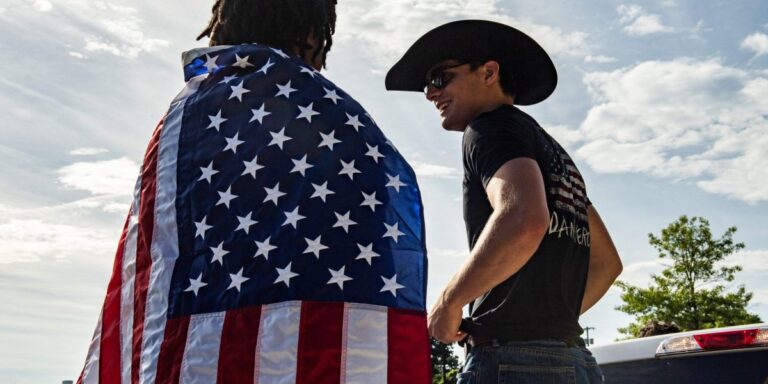July 4th is a day typically filled with food, festivities, and fireworks in the United States, as our nation celebrates the adoption of the Declaration of Independence in 1776. But the day also commemorates something else.
Our celebration of Independence Day is an opportunity to reflect on our country, the progress we have made, and the work we still need to do to strengthen our democracy and our communities as we look to the future.
Like a successful business, democracy only works if all its parts work well. The skills that made this great experiment possible are the same ones that generate the inspiration and innovation needed for breakthrough ideas and continued economic growth. In other words, civics is a 21st-century business skill.
Critical thinking, problem-solving, negotiation, curiosity, adaptability, shared risk-taking, and other so-called “soft” skills are increasingly being called “hard skills” because there’s nothing soft about them. In fact, a recent LinkedIn survey found that nine in 10 global executives say these skills are more important than ever in the workplace.
Collaboration and shared risk-taking
In government, facilitating and making decisions requires people working together. Whether it’s running a polling place on election day or serving on a city committee, getting things done means working with others who may have very different opinions and ideas than you.
Although our neighborhoods, places of worship, schools, and other places where we gather with others may be homogeneous, in our workplace we are likely to encounter people who are different from us.
When team members with diverse opinions and perspectives can work together respectfully and effectively, organizations benefit. Companies and teams adept at sustainable skills can expect higher employee morale, improved product and service quality, and increased innovation, to name a few.
Defuse conflicts and resolve problems
Not understanding how our government works prevents people from finding common ground on fundamental issues. This lack of knowledge fuels division, frustration, and ultimately incivility and an inability to communicate effectively with others, especially those who see the world differently.
Most Americans (58%) believe the tone of the nation is uncivil. However, when people have a common understanding of organizations and processes, they can listen to each other’s arguments and formulate their own. In doing so, they can better use reason to compromise and manage conflict.
Perfecting your negotiation skills
Think about how laws are often made: Someone has an idea for change. Others may disagree. In an ideal world, they discuss their differences, find common ground, and write laws that are strengthened by a diversity of perspectives.
Managers are increasingly concerned about their teams’ unwillingness to compromise and their inability to sit down together to reach an agreement. By many accounts, our founding fathers had widely divergent opinions and argued fiercely. Nevertheless, they were able to find compromises that became the foundation of our nation.
Train critical thinking
Although it sometimes causes grief, jury service is one of the most important ways in which citizens participate in our system of governance.
Being a good juror involves evaluating evidence, challenging our own assumptions, and asking good questions. These same critical thinking skills are needed to make key organizational decisions.
Building Leaders
Understanding and participating in the management of our government teaches us how to operate in complex systems, manage change, and apply common sense and reason to achieve a goal. In short, civic engagement develops leaders who can apply these skills in a multitude of ways, including in the workplace.
Americans want employers to help build bridges, create healthier dialogue, and strengthen cooperation in the communities they serve. 82% of Americans believe businesses can play a role in uniting our country, and nearly 75% of voters agree that businesses have a responsibility to protect our national economy and environment.
Companies can take small but meaningful steps to boost civic engagement. For example, employers can offer employees time off to work as nonpartisan poll workers during local, state, and national elections, helping to address a critical shortage across America. They can also support employees selected to serve on the jury by providing resources to help them prepare for their roles. They can also provide educational experiences that reintroduce employees to the basics of civics, allowing them to learn more about how our government works and how they can meaningfully participate. The U.S. Chamber of Commerce Foundation runs one of many such initiatives that helps employers improve civic skills within their teams.
As we prepare to celebrate Independence Day, now is the time for the business community to commit to improving civic education and skills in the workplace.
Other must-read comments posted by Fortune:
The opinions expressed in Fortune.com commentaries are solely those of the authors and do not necessarily reflect the views and beliefs of Fortune.


